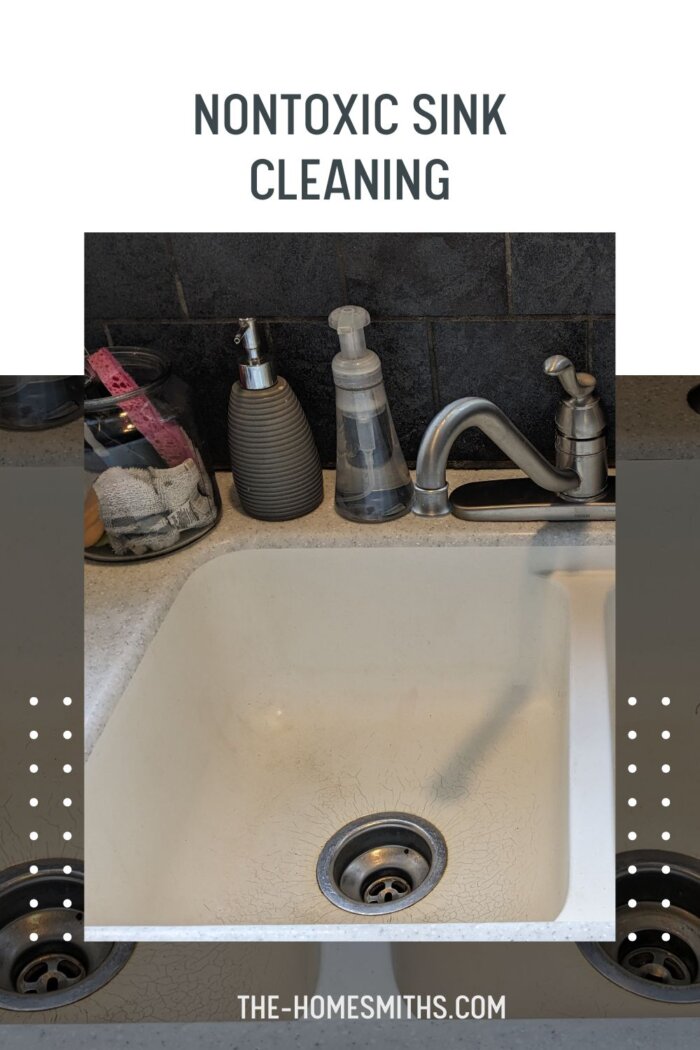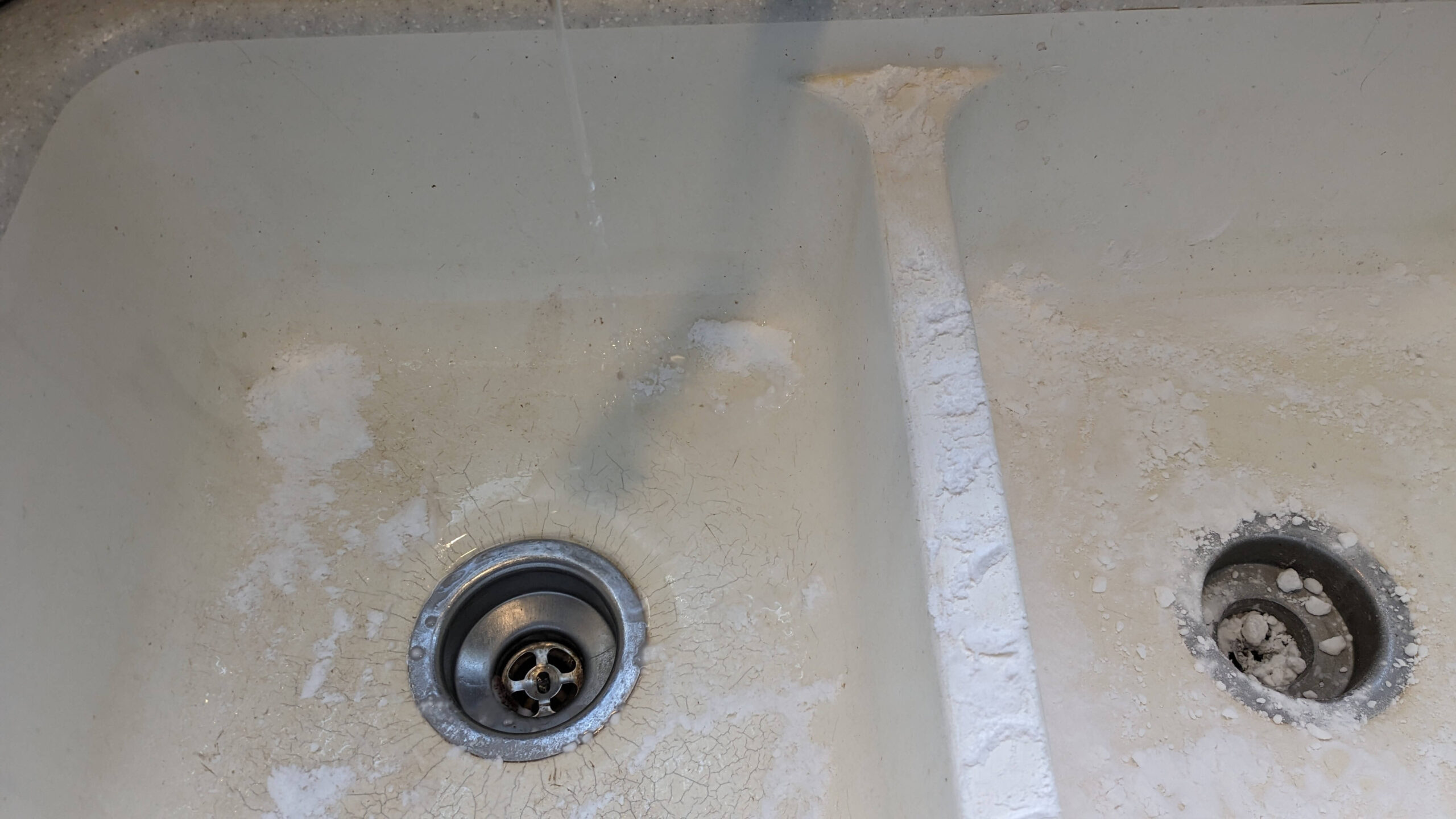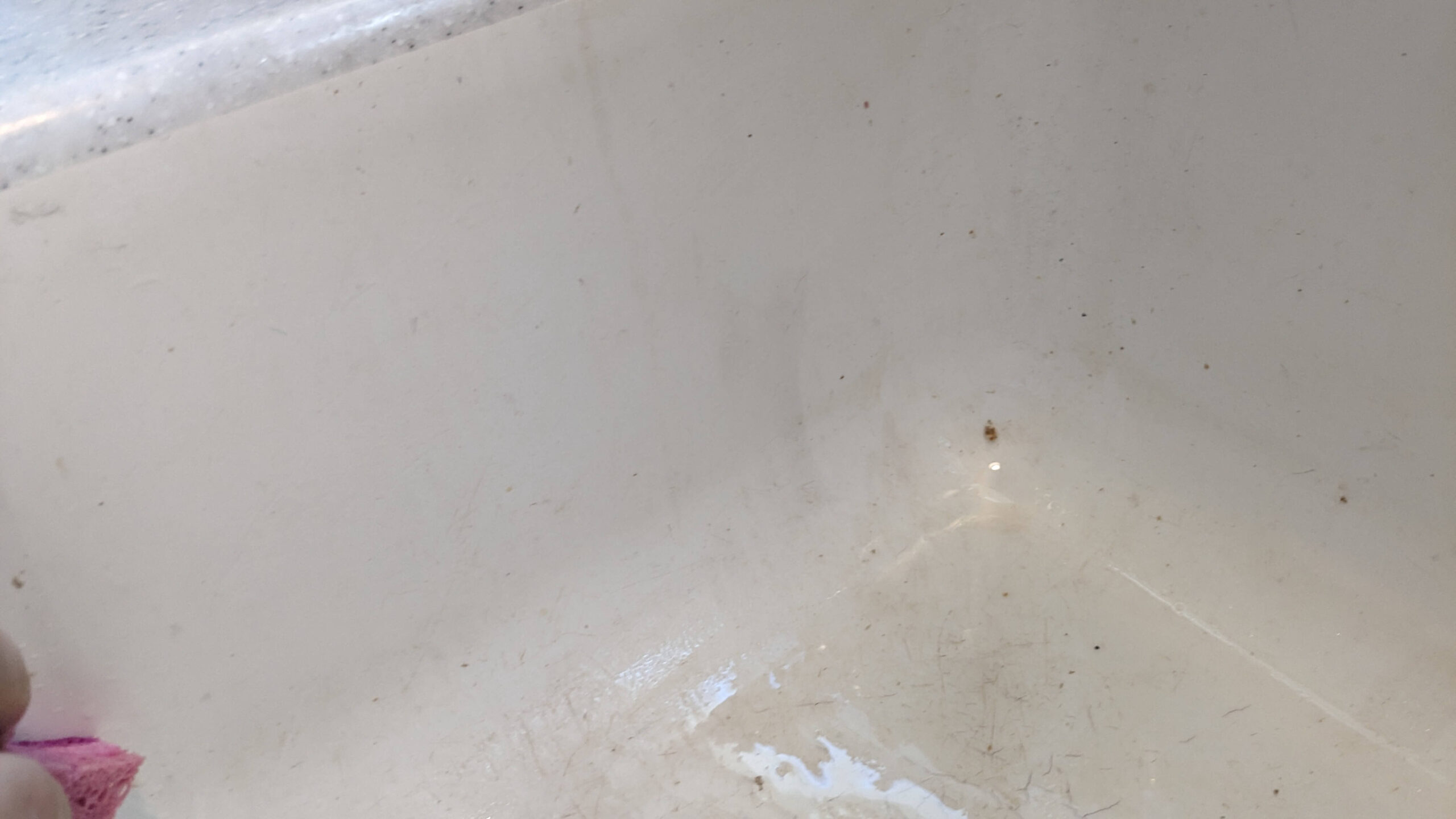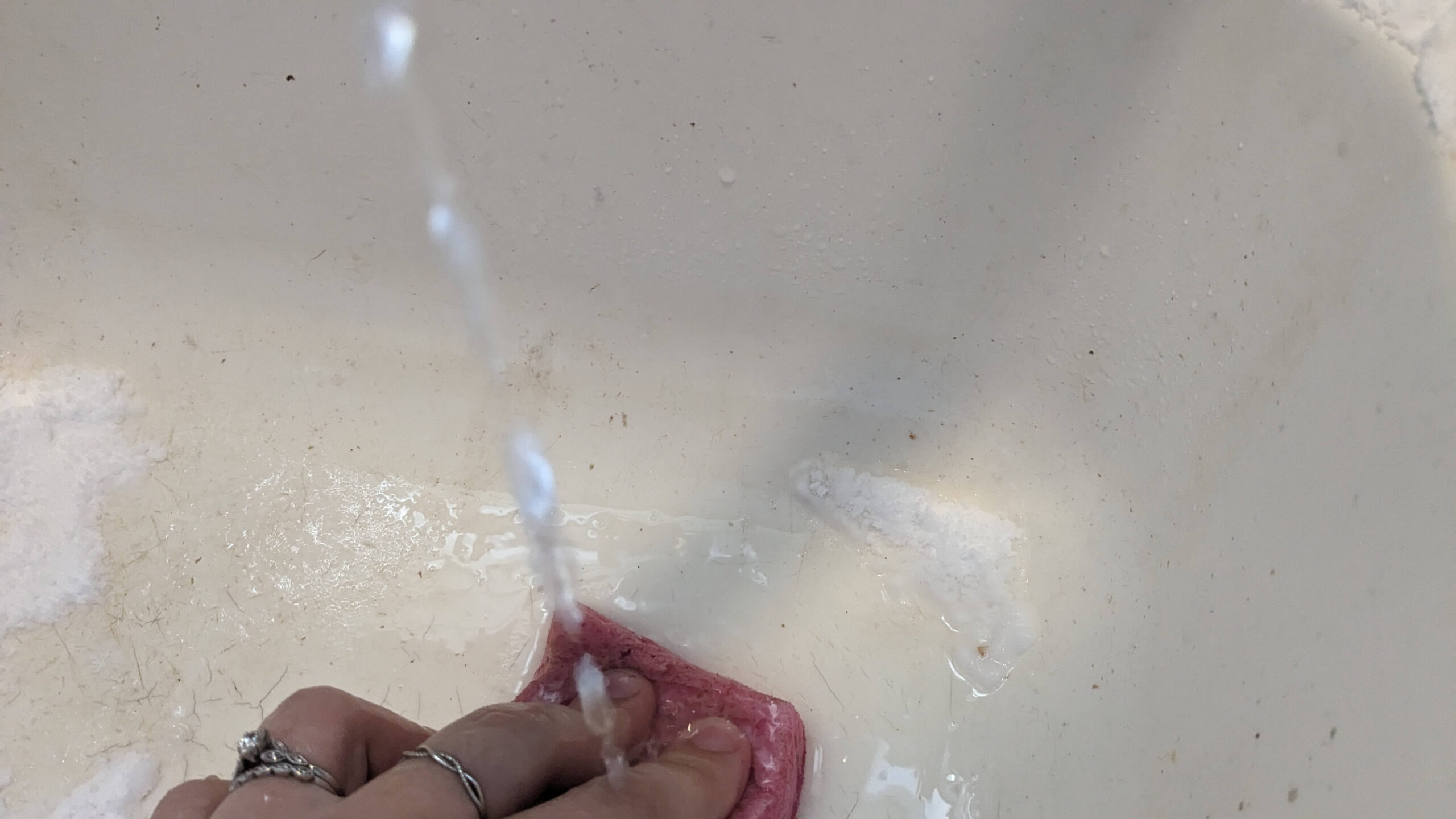Finding alternatives to bleach and harmful or toxic cleaning solutions has been a project of mine as we grow our family. I want to use things that are natural and effective but an area that I have struggled to find a solution is in sink cleaning.
At the beginning of my homemaking journey, I followed the Fly Lady cleaning schedule. If you haven’t heard of her, it’s a great intro to ways to maintain a clean house. I followed the way she suggests to maintain your house for a few years until I grew into the routines that worked best for my family. Anyway, one of her big instructions is to “shine your sink”. As in empty it, and then clean it and dry it. The way that I had started out doing this was using a powdered bleach product, letting it sit, and then scrub and rinse. My mom used the powdered bleach product and so I used it too. There is no denying the results.
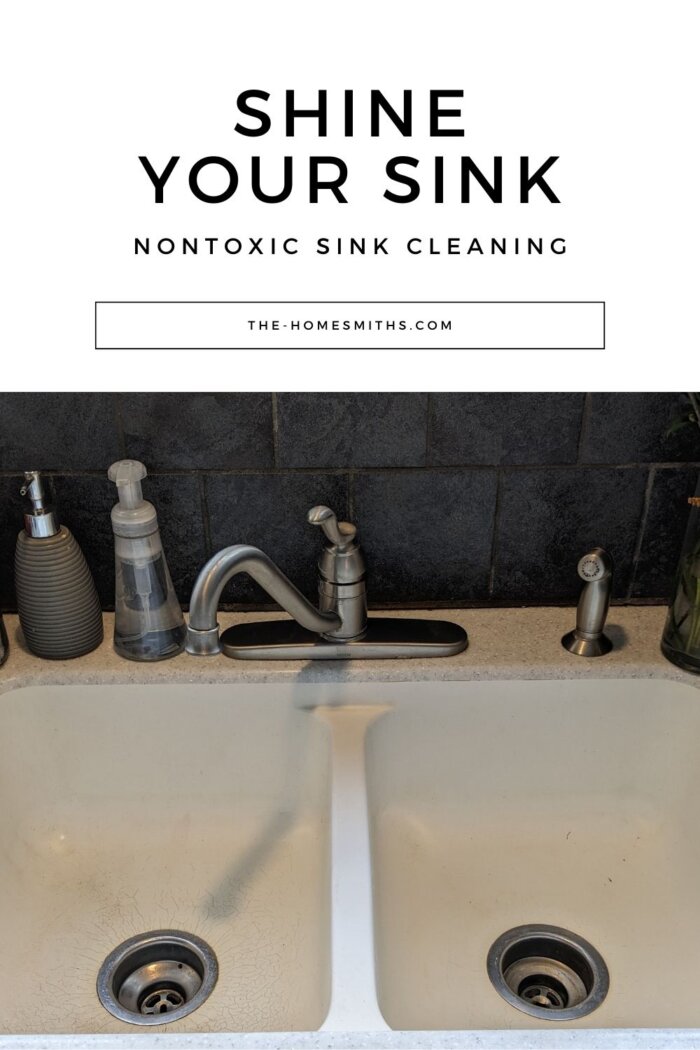
As I’ve pursued healthy or “clean” alternatives around my house, I’ve traded out my deodorants, soaps, shampoos, and cleaning sprays. Yet when I go to our bent-and-dent grocery store, I still find myself looking for that bleach product. However, because of the type of store that it is, they do not always have the same products and this product has been out of stock for a while.
My sink was looking bad. It had different colored stains and was even a little gritty and it felt like no amount of elbow grease was working to get it clean. I was using hot water and dish soap and not having any luck. I was getting desperate and considered turning to Amazon to buy my tried-and-true product but I had the thought to try baking soda.
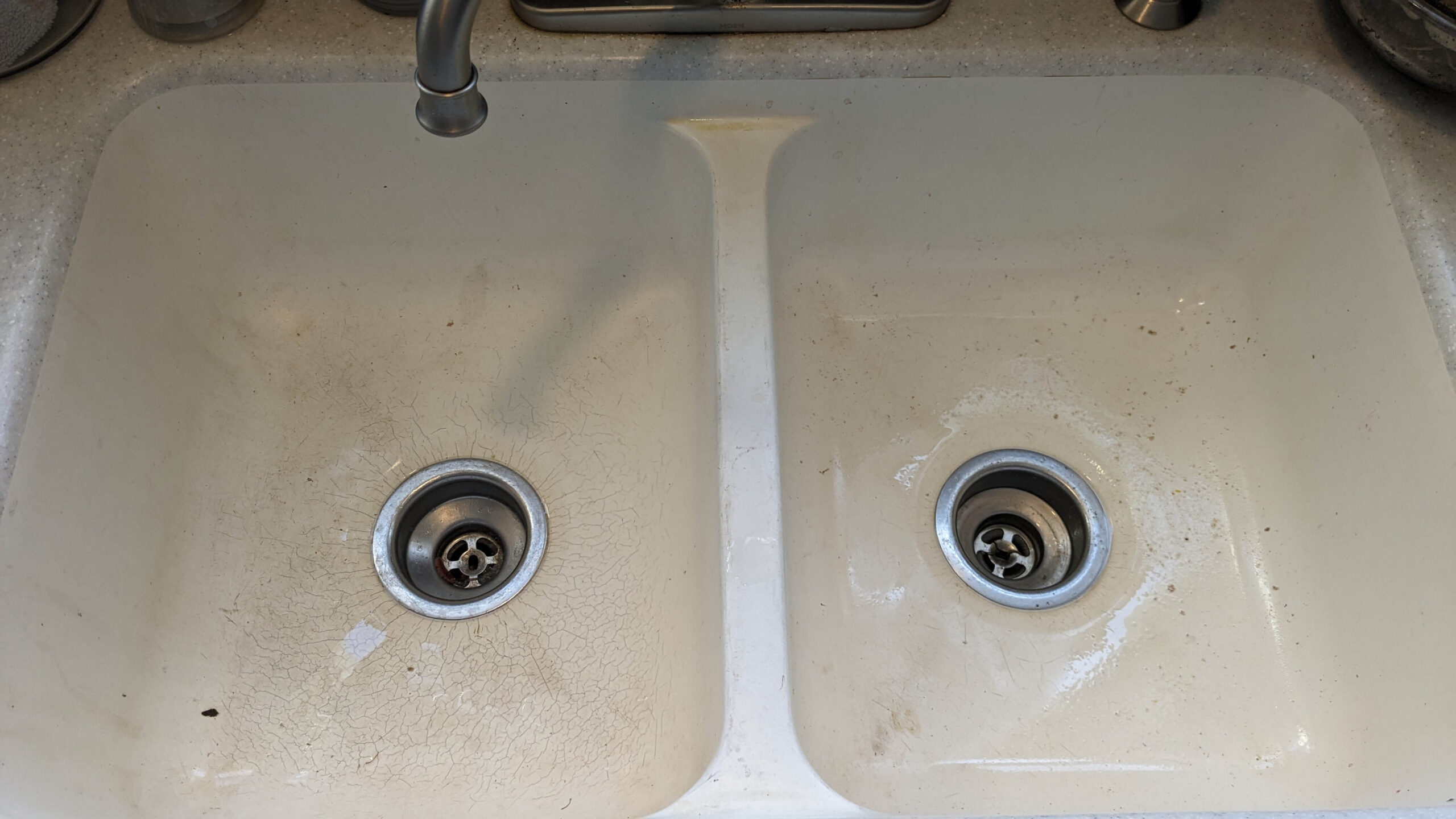
Is baking soda a safe product to use?
I’ve used baking soda in my cleaning routines to refresh carpets and smelly shoes. I’ve even used it on my tub with dish soap and a magic eraser to give it a good cleaning. I just took it on the words of others that baking soda was safe. A quick Google search put my mind at ease. I learned that baking soda is a pure and natural substance that is food-safe. This means it is non-toxic to humans and can be a great alternative to harsh cleaners.
(It’s safe for animals too so long as it is not ingested in large quantities. I am by no means an expert in animals, please refer to this Veterinary site for information on toxic levels of baking soda for animals.)
Check out one of the other ways that we use baking soda here!
Where does baking soda come from?
Baking soda naturally occurs in the ground as a mineral. Wyoming is one of the largest producers.
What shouldn’t you clean with baking soda?
From what I’ve read, you should not use baking soda to clean wood (floors or furniture), glass, mirrors, gold, quartz, or marble.
How do you use baking soda to clean the sink?
This was such an easy process. I rinsed the sink and pulled out any food scraps from the drain. Make sure the sink is wet, then sprinkle baking soda over the whole sink. I used my hands to brush it on the side of the sink and made sure that all the marks and crud were covered.
I let the baking soda sit for about ten minutes. When I came back I used a dry brush to scrub the baking soda. Slowly, I let a little warm water run, and using a sponge, I brushed in concentric circles, moving the whole way up the sides of each half of the sink. Then I used a dry rag to wipe out the sink of any remaining water droplets or baking soda.
By the time I was done, I was so encouraged by the results that I used a little baking soda on the dry rag and cleaned the backsplash, faucet, grout, and soap dispensers.
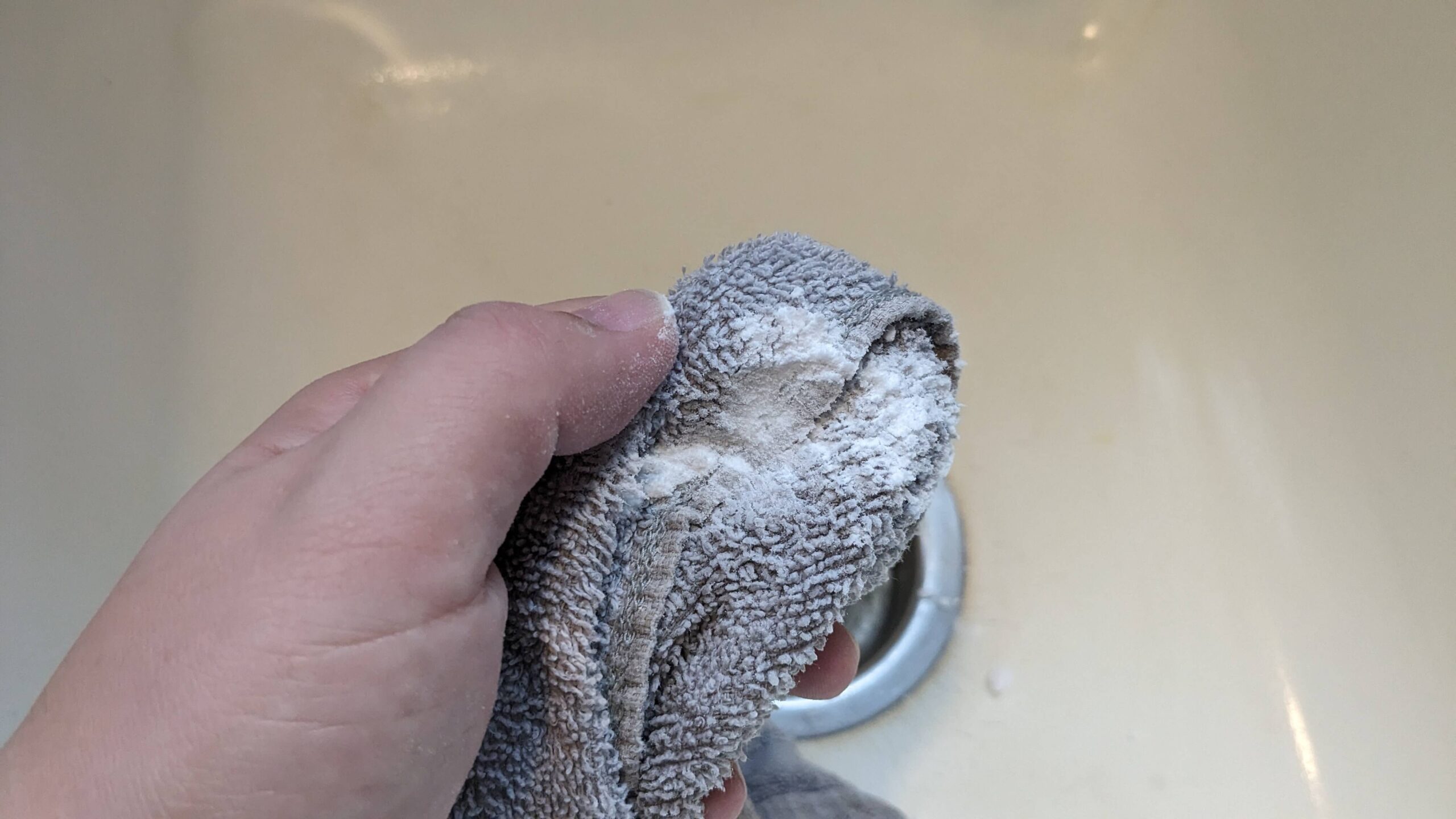
Now that I know how well baking soda works to clean my sink, I will add this to a weekly cleaning routine because I know that a clean sink is a refreshing thing to see when I walk into the kitchen.
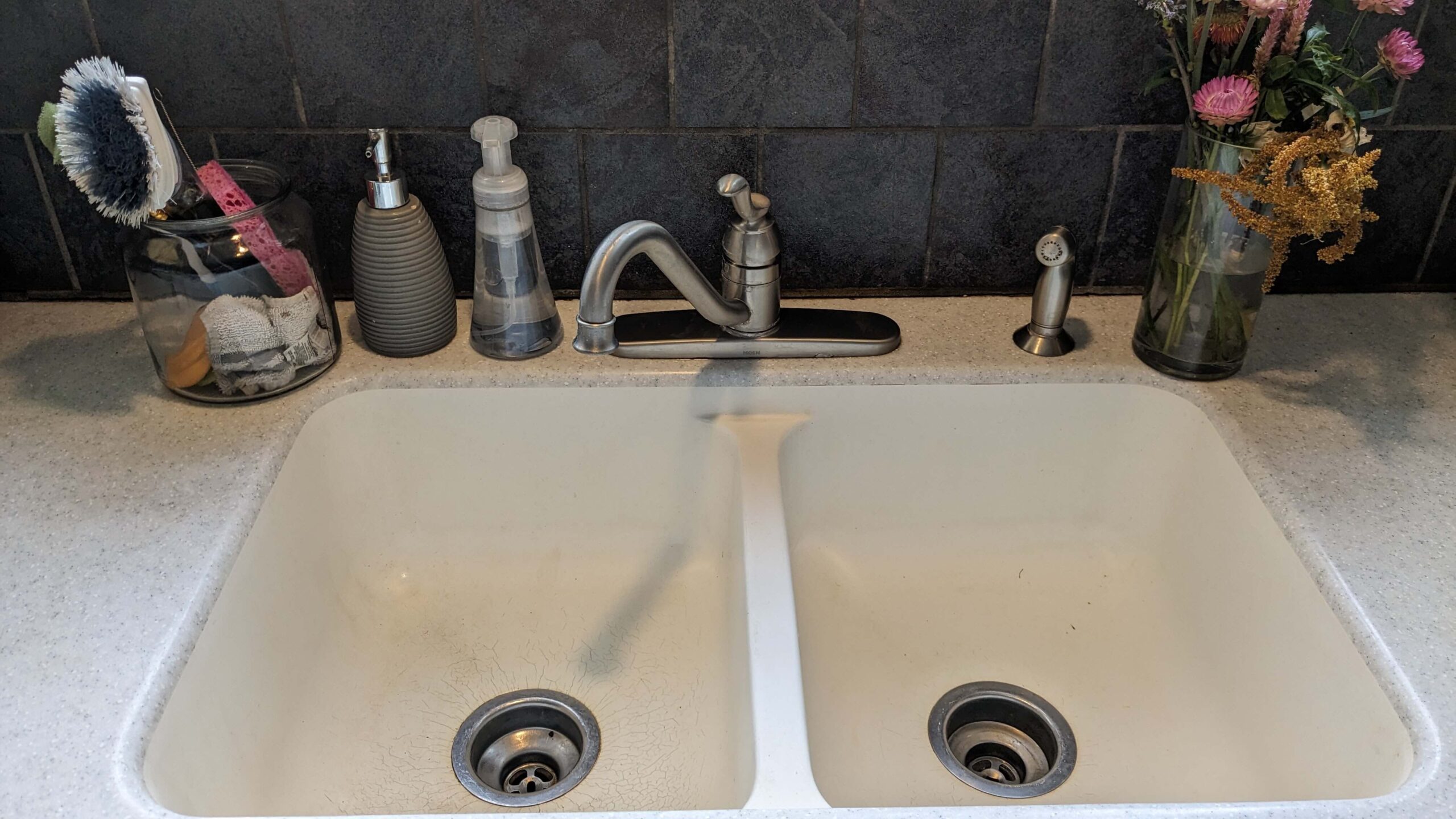
Do you put any emphasis on cleaning your kitchen sink? What does the routine look like? Let me know in the comments below!
Save it for later!
